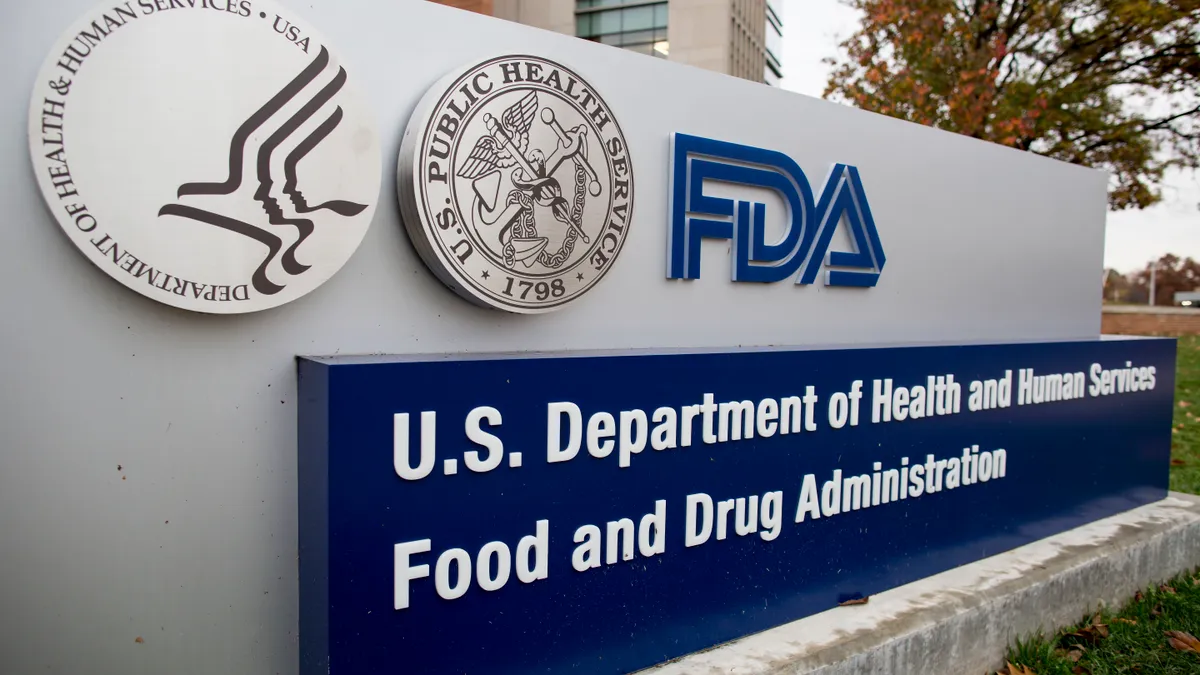Dive Brief:
- The looming Nov. 27 deadline for enforcement of the Drug Supply Chain Security Act is delayed one year until November 27, 2024, giving drug manufacturers and distributors more time to prepare for compliance, according to an August regulatory guidance from the Food and Drug Administration.
- The extension aims to give companies additional time to develop systems and processes for electronically exchanged end-to-end drug traceability at the package level, including modifying IT capabilities and business relationships as needed, the Agency said.
- The FDA will continue to monitor the industry’s readiness to meet the new compliance guidelines throughout the next year and once the policy is enforced.
Dive Insight:
Since its passage in November 2013, the Drug Supply Chain Security Act has drawn skepticism from drug makers and distributors worried about their ability to comply with the law’s new requirements regarding complete end-to-end supply chain visibility for products.
The extension was well received by industry stakeholders, who have voiced concerns over the their readiness to comply with the law’s mandate that drug manufacturers provide distributors with unit-level serialized products to legally move items through their supply chains. Companies expressed worry that communication issues and technology shortcomings in their supply chains could inhibit their ability to move products.
Pharmacists were also worried, given the law’s requirement for distributors to provide pharmacies with electronic tracing data for products, without each they cannot legally receive or dispense items.
“This is a huge win for pharmacists who are still working toward complying with these final supply chain security requirements,” Michael Hogue, EVP and CEO of the American Pharmacists Association, said in a statement.
Industry stakeholders have been vocal about their concerns, including at last month’s Healthcare Distribution Alliance 2023 Traceability Seminar. Speakers at the event noted that errors with upstream data can stop downstream parties from completing their requirements. In turn, starting the process to meet compliance sooner enables industry partners the additional time needed to resolve any potential challenges.
“If you look at most of the larger chains, they're ready, or they [would have been ready] to flip this on in November, but not necessarily be getting data because their trading partners may not be ready to send data," Ilisa Bernstein, SVP of pharmacy practice and government affairs at the American Pharmacists Association, said at the seminar. "But for the small dispensers, the independent pharmacies ... they were just not ready."
Regardless of the extended deadline, Director of the Office of Drug Security, Integrity and Response Leigh Verbois said at the seminar that the revised date should be viewed as a stabilization period, not a “justification to stop implementation.” Verbois added, “we want this implementation to be done by 2024.”
Final implementation of the act has been a long time coming, with companies preparing to comply since the legislation was passed nearly a decade ago. The compliance policies are meant to help “protect patients from exposure to drugs that may be counterfeit, stolen, contaminated or otherwise harmful and to ensure adequate distribution of finished prescription drugs throughout the supply chain,” according to the FDA.
In the ten years since, the impending enforcement of the law has continued to agitate industry players, who say the delay will help keep supply chains operational.
The agency’s decision to delay puts “the health and safety of Americans first," HDA President and CEO Chip Davis said in a statement. "The agency heard the concerns of distributors, manufacturers and pharmacists and provided guidance that will ultimately minimize the potential for disruptions in the short term.”













